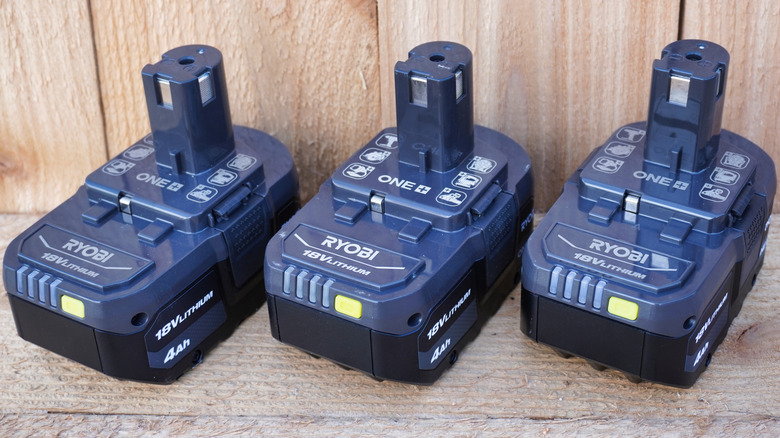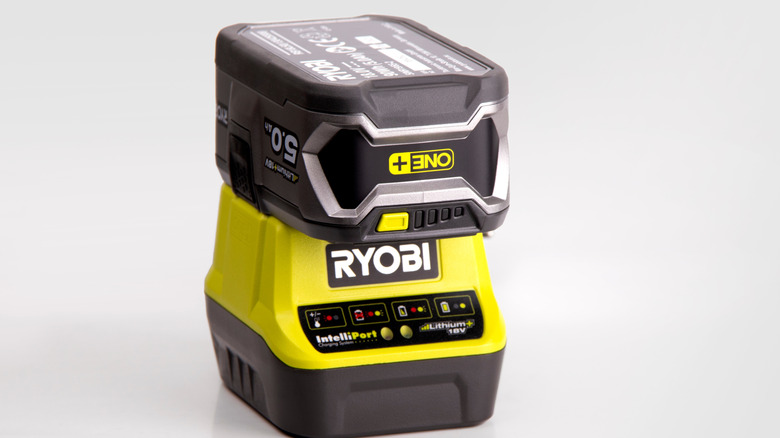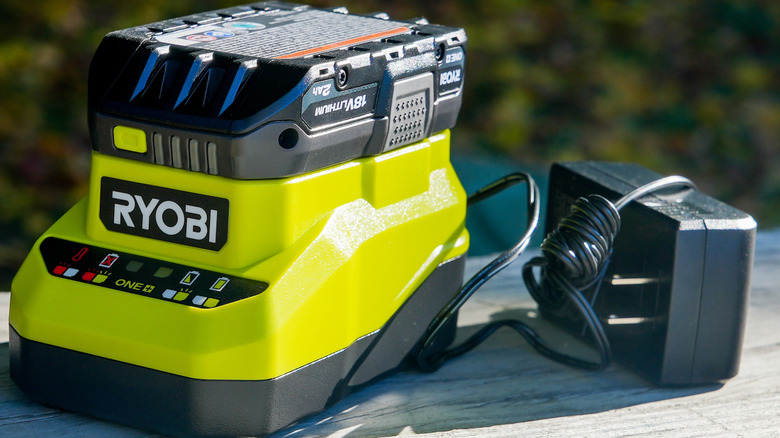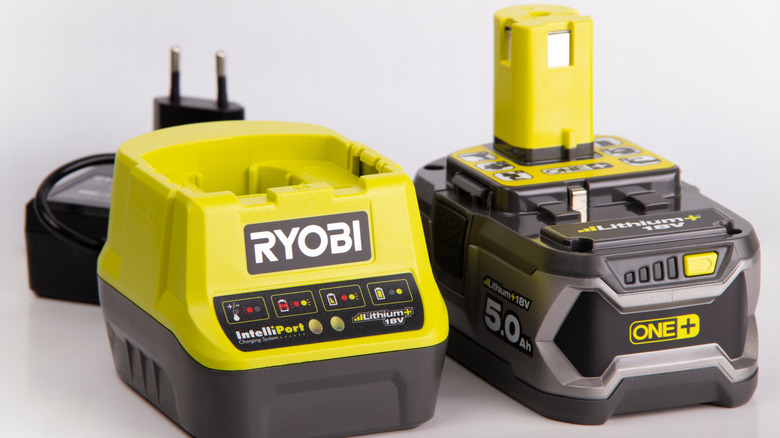3 Of The Most Common Problems With Ryobi Power Tool Batteries
When it comes to ranking the best power tool brands, Ryobi is often a go-to choice for DIY aficionados and professionals alike. Since 1943, Ryobi has received many reviews praising it for crafting an assortment of tools that offer good value for money. Plus, their tools are easily accessible and use the Ryobi ONE+ system. That means you can use a Ryobi 18V battery to power a range of handheld Ryobi tools, from pruning chainsaws and vacuum cleaners to power drills.
Despite these perks, though, not everything about Ryobi batteries is praiseworthy. For sure, you can always expect Ryobi tool batteries to last about 3 to 6 years with proper care. But some everyday habits can significantly degrade the quality of your battery, and you'll need a replacement at some point in the future. After all, like any other rechargeable batteries, Ryobi tool batteries appear to be plagued by an array of common problems, some of which might be minor inconveniences and others large. That said, here are the most common ones.
1. The battery won't charge at all
When it comes to rechargeable batteries, it's one thing for them to drain charge fast, and it's another for them to fail to take a charge completely. You charge the battery for hours, plug it into a power drill, turn it on... and nothing happens. Well, if the status light flashes an error code after you slot the battery into a charger, the main culprits might be a dirty charger. Your warehouse or garage is usually a messy place, and bits of dirt can get into the grooves of your charger or battery pack. Over time, they will build up and prevent the charger from making a solid connection with the batteries. When this happens, you'll want to clean the charger terminals and battery with a dry cloth.
Another culprit that could be preventing the charging process is the battery itself. Sometimes, the battery voltage might also be so low that the charger fails to detect the battery. If this happens, you might be tempted to search YouTube videos to see how people are opening battery packs to fix this issue. Of course, some of these DIY solutions might help, but you must think twice before repairing your Ryobi batteries at home. These batteries are usually complicated, and if you make a single mistake, you might be left with a serious injury. That's why it's best you leave these services to an expert or, even better, purchase new batteries.
2. Overheating
One significant and scary issue with Ryobi batteries is the fact that they tend to overheat. Generally speaking, you can't operate a power drill and not expect its lithium-ion batteries to generate some heat. However, when the batteries become exceptionally hot, you'll want to do something about it as quickly as possible. The problem with an overheated Ryobi tool battery is that it could sustain permanent damage if you undermine it. Even worse, you could be looking at battery explosions, which could start a fire or blow up your new Ryobi lithium tools.
The good news? Ryobi batteries, particularly the 40V and 18V batteries, have temperature regulation features that reduce the power if the batteries become too hot. That doesn't mean that these batteries aren't prone to overheating, though. So, how can you protect your Ryobi batteries from overheating? The first thing you should do is to let the batteries cool after heavy use before charging them. Conversely, after charging, you'll want to let the batteries cool for a few minutes before installing them on a tool and using it for a DIY task.
3. The battery won't hold a charge for long
For many DIY enthusiasts, having a Ryobi tool available for use is essential. That's why it can be pretty frustrating if you grab your drill, snap in a fully charged battery, and it dies after just a few minutes. It either refuses to charge or discharges charge more quickly than before. And while there is not a one-size-fits-all explanation for this, one of the most common culprits is the age of the battery. Each charge cycle (from empty to full) will slightly wear down the cells when you charge your lithium-ion battery. That means that after thousands of cycles, the wear and tear of cells will add up, leaving you with a pack that can't store as much energy as it once did.
Alternatively, the problem could also be a result of how you store your batteries. In fact, storing your battery in a hot garage is one of the most common habits that will ruin your power tool batteries. Not only will it reduce its lifespan, but also its performance, especially by destroying the lithium-ion battery cells. To avoid this, store the batteries in a place that's away from heat sources and direct sunlight. You'll also want to fully charge the batteries before storing, especially if you plan not to use the batteries for over six months.



